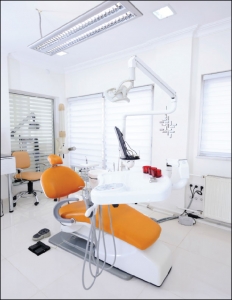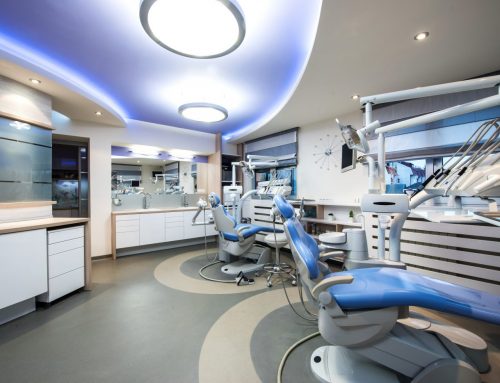Commercial office leases are often drafted using a “one-size fits all” approach, and with some minor modifications, generally the same lease will govern all tenants in an office building, shopping mall, or strip plaza.
While it may work for the typical office or retail tenant, this approach doesn’t work for dental tenants who have specific needs which are unique to their business.
For this reason, an extensive analysis into the nature of your business and practice goals should be conducted to ensure that your dental office lease works for you, not against you.
With over 20 years of experience in dental tenant representation, having negotiated over 10,000 dental office leases, we at Cirrus understand exactly what dental professionals require out of an office lease agreement; terms which the standard form commercial lease simply cannot provide.

Here are some key areas that the startup or renewing dentist should pay critical attention to when evaluating and negotiating the details of a commercial office lease:
The Use Clause: Dictating What You Can Practice in the Space
Landlords typically use the “Use Clause” to limit tenants to using the space for a specific purpose only, thereby giving themselves the flexibility to lease other space in the building to a variety of tenants without restriction. While it is less significant to the typical office tenant, the “Use Clause” is essential to the dental tenant, and should be drafted broadly to encompass the range of services that will be practiced in the space. For example, specialties of dentistry such as orthodontics or endodontics may not be covered by using the term “general dentistry” in the “Use Clause.”
Do You Have Exclusivity Rights?
Exclusivity is a must for new dental practice owners. The nature of a dentist’s business allows them to serve patients located within a specific geographical area; another competing dentist moving into the center could be extremely detrimental to new patient flow.
It is worth carving out an exclusivity provision in the lease to protect your business by prohibiting the landlord from leasing space to other dentists in your centre throughout the duration of your tenancy. The more specific you are in the exclusivity clause, the more protection you will have over competitors moving in.
Will the Trade Fixtures Remain Yours When You Exit the Practice?
One of the most important elements of a dental practice are the “trade fixtures,” which are comprised of expensive pieces of dental equipment such as x-ray machines, dental chairs and cabinetry. This equipment, unique to a dental practice, often far exceeds the value of the fixtures a retail or office tenant will require. Therefore, it is not only crucial to maintain “ownership of these fixtures” throughout your tenancy, but also that you are able to remove them when the time comes to exit.
If your landlord has rights to claim ownership over these fixtures through the lease, you will lose the hundreds of thousands of dollars you have invested into this equipment. It’s important to carefully define in the lease what will remain as your trade fixtures versus the landlord’s, and what is classified as “leasehold improvements” vs. “tenant trade fixtures.”
Is the Lease Set Up for a Smooth and Profitable Practice Sale?

The sale of your dental practice is a critical element of your retirement plan, and one that is usually predicated upon the ability to assign the lease to a future buyer. If the assignment of lease cannot happen, the value of your sale greatly diminishes. This key point is one which distinguishes a dental tenant from an office or retail tenant; they don’t need to assign their leases as regularly or as frequently as dentists.
In the standard form lease, the “Assignment” clause is generally structured to place great restrictions upon the ability to transfer the lease, often requiring new assignees to meet strict standards set out by the landlord. It’s important to negotiate this clause to facilitate a smooth, safe, and profitable practice sale, while also setting up the assignment of the lease to satisfy both your needs and those of a future buyer.
Death and Disability Protection
If something were to happen to you during your lease term that prevented you from working, it would be your family or estate who is left with the crippling burden of paying off your practice’s debt, including rent for the duration of the term. It is strongly encouraged to have the security of a “Death and Disability” clause negotiated into the lease to cap exposure and limit the time frame that your loved ones will remain accountable for your debts.
Structuring the Office Lease to Protect Your Dental Practice
These are but a few important clauses to be aware of in the office lease that are unique to a dental practice and its success. Having a better understanding of your long term growth and career plans prior to negotiations with your landlord will help you secure a lease agreement that allows your practice to meet these goals and thrive.
If you are starting a practice or renewing your dental office lease in the next two years or less, you are encouraged to engage the help of professional dental office lease negotiators to review the details of your lease to ensure it is properly structured and free of risks. Make your office lease work for you.
Article written by Cameron Bryant, J.D., Lawyer and Lease Negotiator with Cirrus Consulting Group.



